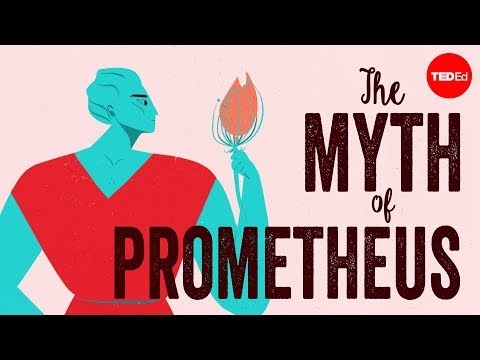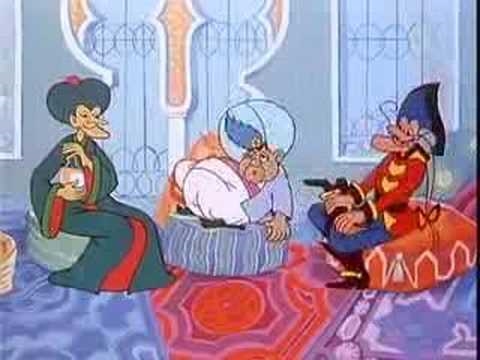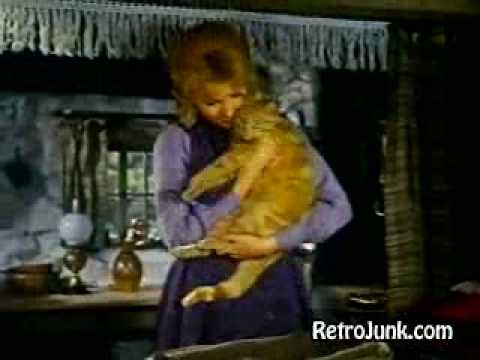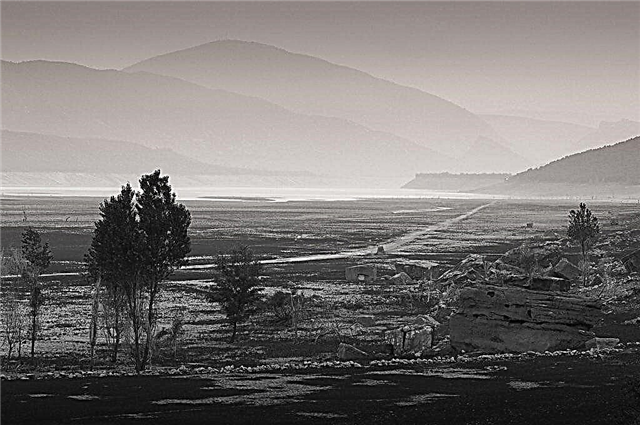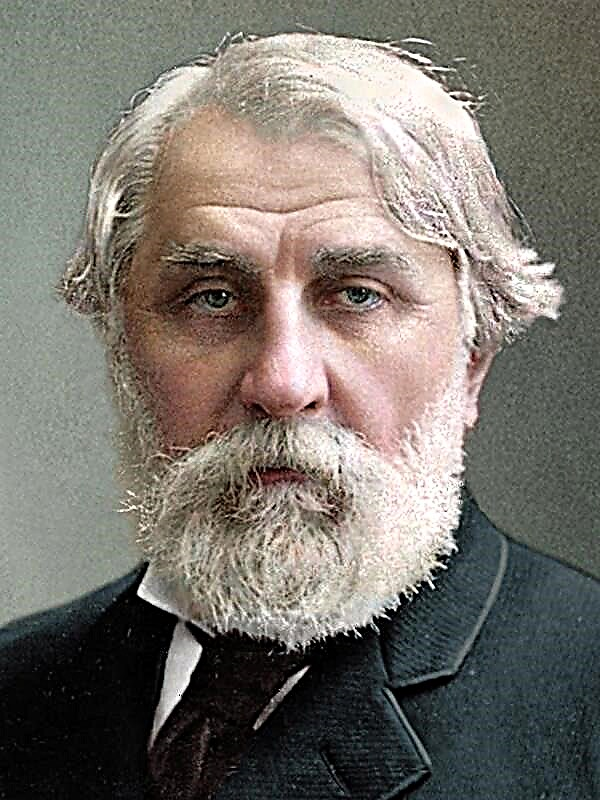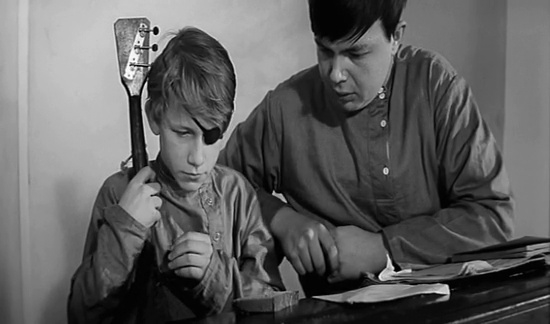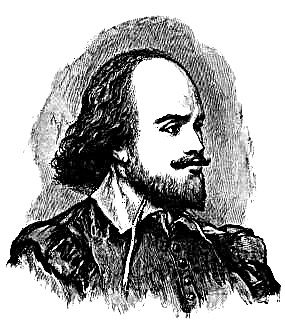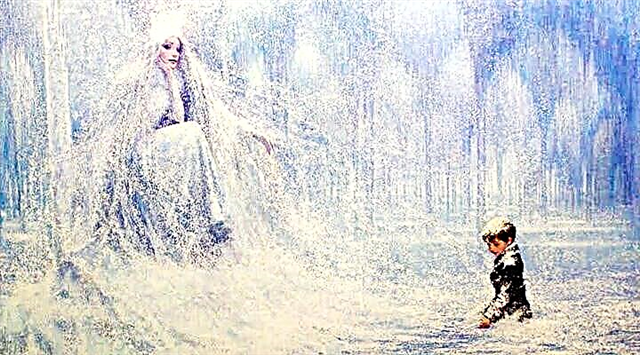Prologue
Ursus (Latin Bear) was a versatile person. It hid a philosopher, and a poet, and a healer, and a street hangman, and a ventriloquist, capable of accurately reproducing any sound. Ursus wandered throughout England with his faithful wolf Homo (Latin Man). Their refuge was a small wooden cart from thin boards, similar to a box with two doors at the ends. Inside was a large chest, an iron stove, and a small chemical laboratory. Homo served as a horse for the cart, next to which Ursus often harnessed. The wolf was not only a draft force, but a full-fledged participant in the performances: he showed different tricks and went around the audience with a wooden cup in his teeth. One profession of Ursus helped another: the play written and played by him gathered the people who bought the drugs prepared by Ursus.
“He was not tall, but seemed lanky. He was hunched over and was always thoughtful. ” Despite his many talents, Ursus was poor, and often went to bed without dinner. “In his youth, he lived as a philosopher with one lord,” but when he met Homo in the forest, he felt a craving for vagrancy and preferred “hunger in the forest to slavery in the palace”. Now “the inner state of Ursus was a constant deaf rage; his grudge was grumbling. ” He was a pessimist and saw the world only on the bad side.
Ursus treated life with a grim philosophy. This man never smiled, and his laugh was bitter. The power of the aristocracy, he considered inevitable evil, which should be reconciled. However, he kept these thoughts to himself, pretending to be an ardent admirer of aristocrats. The proof of this was the two longest graffiti on the walls of the cart. One described the most complex etiquette rules that guided the English aristocracy. The second inscription was a list of all the possessions of the dukes, counts and barons. This list was preceded by the inscription: "Consolation, which should be content with those who have nothing." Opposite the name of Lord Linnaeus Klencharli, it was stated that all his property was under arrest, and the lord himself was a rebel in exile.
While wandering around England, Ursus managed to avoid trouble, although James II had already passed a law to prosecute the Comprachicos. The persecution of them continued during the reign of William and Mary. Comprachicos were called the people involved in the production of freaks. In the XVII-XVIII centuries, at the court of any aristocrat there was a dwarf jester, and the public at the fairgrounds were entertained by freaks. Comprachicos bought children and changed their appearance surgically. They turned beautiful, healthy children into dwarfs and funny freaks. Often, they used the services of the Comprachicos to remove the unwanted heir. These scammers were of different nationalities and usually went astray. Oddly enough, the Comprachicos were not pagans, but ardent Catholics and "zealously guarded the purity of their faith."
Part I. Sea and night
The winter of 1689-1690 was unusually cold. One of the coldest January evenings of 1690 in one of the bays of Portland Bay docked Biscay Urka - an old ship with a strong pot-bellied hull. Some people hurriedly loaded into the urk. One of the obscure silhouettes, the smallest, belonged to a child. He was dressed in rags, while his companions took refuge in long, wide cloaks with hoods. Submerged, people came aboard. The child wanted to follow them, but the leader of the gang at the last moment threw the board that serves as a ladder. Urka set sail, leaving the child alone in a deserted and cold wasteland.
The boy did not have shoes, and his rags and a sailor jacket draped over them did not warm at all. Having hardly got out of a deep bay with steep slopes, the child saw before him a vast and uninhabited plateau, white with snow. He ended up on the Portland Peninsula. The boy was lucky: he turned towards the narrow isthmus connecting the peninsula with the English islands. On the way, he came across a gallows. The body of the hanged smuggler was covered in tar. This was done to keep the body as long as possible and serve as a lesson to others. The hanged man’s shoes were lying under the gallows, but the child did not dare to take it.
Fascinated standing in front of the corpse, the boy almost froze. Suddenly a gust of wind, a harbinger of a snowstorm, swung the dead man abruptly. This scared the boy, and he ran. Soon he passed the very dangerous Portland Isthmus, which was a "two-sided ramp with a rocky ridge in the middle", and saw smoke - a trace of human habitation.
Meanwhile, a snowstorm overtook the urku crossing the Lamansh. The crew fought with her for a long time, miraculously avoiding a variety of dangers, but the struggle was in vain. When the storm subsided, it turned out that almost the entire crew of the urki, led by the captain, was washed away into the sea, and the ship itself got a hole and goes to the bottom. The urki passengers were comprachicos. They hired a ship to escape to Spain. Making sure that the land is far and there is no salvation, the eldest of the comprachicos wrote a confession, which the others signed. The document was placed in a glass jar, braided with willow rods. The name of the owner was tied to the braid. They closed the flask, ground the neck, and threw this fragile vessel into the sea.
A blizzard raging at sea swept the land. Passing the isthmus, the child noticed human tracks in the fresh snow. Quiet and strange sounds coming from the snowy haze helped him not to lose track. In the end, the boy came upon a dead woman, next to whom a nursing infant was swarming. The boy picked up the baby, wrapped it in his jacket, and with a load in his hands moved on.
Some time later, the boy saw "not far from himself roofs and chimneys covered with snow." He entered the town, sleeping soundly, and began to knock on all the doors, but no one was in a hurry to open it. Finally, he came across a wasteland, where the cart of Ursus stopped for the night.
When the boy knocked, Ursus was about to eat his meager dinner. He did not want to share, but the philosopher could not freeze the child. Without stopping grumbling and cursing, he let the boy into the house, dressed in dry clothes and gave him his dinner. To Ursus's amazement, the one-year-old girl was in the package the boy brought with him. Ursus gave her the milk she hoped to eat. In the morning, the philosopher found that the boy’s face was disfigured - eternal laughter froze on him. The girl was blind.
Part II By order of the king
Lord Linnaeus Clencharly was a "living shard of the past." He, like many other peers, recognized the republic, but after the execution of Cromwell did not go over to the side of the restored monarchy. Remaining a convinced Republican, Lord Klencharli retired into exile on the shores of Lake Geneva. In England, he left his mistress with his illegitimate son. The woman was beautiful, noble and very quickly became the mistress of King Charles II, and her son David Derry-Moir began his career at court. About Klencharli forgot for a while.
Behind the old lord, however, remained the title and peerage. In Switzerland, he married, and he had a legitimate son and heir. Having ascended the throne, James II decided to correct the mistake made by the previous king. Old Klencharli had died by that time, his rightful son mysteriously disappeared, and David became Lord Peer. Lord David also got an enviable bride, the beautiful Duchess of Josian, the illegitimate daughter of James II.
Time has passed. Queen of the English became Anna, daughter of James II. Josiana and David liked each other, "the sophistication of their relationship admired the courtyard."He was built, tall, handsome and cheerful. She is beautiful and noble. However, they did not rush the wedding: both the bride and groom cherished their freedom, although in 1705 she turned 23 years old, and he - 44.
Like all the aristocrats of that time, David and Josiana were fed up with their wealth. The duchess, an arrogant and sensual woman, considered herself a princess, since she was a side sister of Queen Anne. She did not have a lover just because Josiana could not find the most worthy, she was protected not by modesty, but by pride. The Duchess could be called a depraved virgin, "the personification of sensual beauty." The queen, an ugly and stupid woman, did not like her beautiful sister.
David, the rake and trendsetter, had much more fun. He participated in the cruel mischief of aristocratic youth, but he himself was not cruel. He was the first to begin to repair damage to victims of entertainment. David attended boxing fights, participated in cockfights, and often dressed as a commoner to stroll through the streets of London, where he was known as Tom-Jim-Jack.
The Queen, David and Josiana followed each other. In this they were helped by a man named Barkilfedro. He was a confidant of all three, while each of this trinity believed that Barkilfedro serves only him. As a servant of James II, he gained access to Josiane, and through her fell into royal chambers. After some time, Josiana arranged her “trusted person” for the position of “opener of ocean bottles” - such a position existed then in the Admiralty of England. Now Barkilfedro had the right to open any tank thrown ashore by the sea. The outward courtesy and helpfulness of the servant hid true deceit underneath. Josianus, who patronized him casually, in passing, he hated. All goodness requires vengeance, and Barkilfedro was waiting for the opportunity to strike Josiana.
Saving the bride from boredom, Lord David showed her Guinplen - that's how they began to call the boy who was once saved by Ursus. The blind girl, who turned into a beautiful girl, like an angel, was called Day. Ursus adopted both children. For fifteen years they have been wandering along the roads of England, amusing the mob. Gwynplaine was incredibly ugly. His face resembled the “head of a laughing Medusa,” and his thick and thick hair was painted a bright red color. His body, on the contrary, was beautiful and flexible. The guy was not stupid: Ursus tried to convey to him everything that he knew. The ugliness of the young man was not natural, his face was redrawn by comprachicos. Gwynplaine, however, did not complain. Looking at him, the people laughed to the point, and then paid well. Thanks to Guinplen's appearance, his companions did not need anything.
Beautiful Deya was sixteen years old, Guinplen turned 24, they loved each other and were infinitely happy. Their love was pure - they almost did not touch each other. For Dei, Gwynplaine was the most beautiful person in the world, because she saw his soul. The girl did not believe that her beloved is ugly, and people laugh at him. Gwynplaine idolized Dei. Ursus looked at them, rejoiced and grumbled. Over the years, they got hold of a new large van, the Green Box, the middle of which replaced the stage. Homo no longer had to carry the house on himself, the wolf was replaced by a donkey. An old cart, set in the corner of the van, served as the bedroom of Dee. Ursus even hired two gypsies who participated in performances and helped with the housework. A sign hanging on the wall of the van told the story of Guinplen.
Having traveled all over England, Ursus decided to go to London. Comedians settled in the Tedcaster Hotel, located in one of the suburbs of London. The square courtyard of the hotel turned into a theater hall in which Ursus presented the play “Defeated Chaos” written by him. The most ardent admirer of the play was Tom-Jim-Jack."The Man Who Laughs" was so successful that he ravaged all the surrounding booths. The owners of the booths filed a complaint against Ursus, the priests joined them, but this time Ursus managed to get out of the water dry, and the scandal only increased the popularity of the Green Box.
Once a beautiful and noble woman visited the performance of Ursus. It was Josiana. Gwynplaine's ugliness amazed her. The Duchess decided that only this king of freaks is worthy to become her lover. One evening, Guinplen, as usual, was walking near the hotel. A smart page-boy came up to him and handed over a letter from the Duchess, in which there was a confession and an appeal. Even at the performance of Gwynplaine, she was impressed by the beauty of the woman, but he did not change Deya. Without telling anyone, the young man burned the letter.
Meanwhile, Deya, fragile as a reed, was becoming weaker. Ursus suspected her of an incurable heart disease. He was afraid that the first strong shock would kill the girl.
On that morning, when Gwynplaine burned the duchess's letter, a batman appeared in the Green Box. In the 18th century, this man performed police functions, arresting criminals, suspects, or witnesses. In his hands he held an iron rod. The one to whom the iron rod touched had to silently follow the baton, without asking questions. That morning, the wand touched Gwynplaine. Dei did not understand that her beloved had left, and Ursus did not begin to say anything to her, fearing for the girl’s health.
The old philosopher followed the wand. He brought Guinplen to prison. Ursus spent all night near the prison, but the prison’s doors never opened. Gwynplaine was taken to an underground chamber where they tortured a man - he was crucified and crushed by a lead plate. Seeing the young man, the man recognized him and "burst out with a terrible laugh." After that, the judge present here stood up and called Guinplaine Lord Fermen Klencharli, Baron, Marquis and Peer of England.
This transformation was due to Barkilfedro. It was he who opened the flask with a confession written by a gang of comprachicos before his death. He learned that the boy they had left on the shore was the rightful heir to the exiled Lord Klencharli, who was sold to the Comprachicos on the orders of King James II. A mask of laughter on Guinplen's face was created by a certain Hardquanon. He was found, tortured, and he admitted. Lady Josiana was engaged to Lord Clencharli, but not with the man, but with his title. If the title changed ownership, then the duchess was supposed to change the groom. Barkilfedro realized that he had in his hands the long-awaited instrument of revenge. The queen supported her faithful servant. Together, they restored Gwynplaine to their rights.
Stunned by this news, the young man lost consciousness. He woke up in a beautiful palace, where Barkilfedro brought him. He explained to Guinplen that his life had changed dramatically, and he should forget the Green Box and its inhabitants. Gwynplaine was eager to report everything to Ursus, to bring him the money, but Barkilfedro did not allow. He undertook to withdraw a substantial amount himself and left, locking up Guinplen in the palace.
The young man did not sleep all night. In his soul, "the suppression of the greatness of the moral by the thirst for material greatness" took place. He, as if delirious, reveled in his power and wealth all night, but when the sun rose, he remembered Day.
Ursus returned home only in the morning. He did not dare to tell Dea that Gwynplaine was gone, and made a whole performance, imitating Gwynplaine's voice and the noise of the crowd. However, he could not deceive a blind girl - she felt that there was no beloved near her. Towards evening, a policeman came to the hotel and brought Guinplen's clothes. Ursus rushed to the gates of the prison and saw the coffin being carried out of them. In it lay the comprachicos who died from torture, but the philosopher decided that his pupil was buried. Returning to the hotel, Ursus found Barkilfedro there, accompanied by a bailiff. He confirmed that Gwynplaine was dead, and ordered the philosopher to leave England.
Recovering, Guinplen began to look for a way out of the palace, resembling a maze. Soon he was in the hall with a marble bath.Adjoining the room was a small room with mirrored walls, in which a half-naked woman slept. She woke up, and the young man recognized the duchess. She began to seduce Gwynplaine. He almost gave up, but at that moment a letter came from the queen, from which Josiana learned that Gwynplaine was her future husband. She instantly cooled off to her new toy, stated that her husband was not entitled to take the place of her lover, and hid in the labyrinth of the palace.
On the evening of the same day, Guinnplaine went through a full ceremony of initiation into the peers of England and ended up at a meeting of the House of Lords. He considered himself a messenger of the lower classes of English society, hoping to reach out to the consciousness and souls of those who rule England, to tell about the poverty and powerlessness of the common people. A rumor had already passed around London about the rise of the fair buffoon, and the lords who had gathered at the meeting spoke only about this. They did not notice Gwynplenn until he got up and made a fiery speech. With inhuman effort, he managed to drive the grimace of eternal laughter from his face. Now he was serious and terrible. For some time, Gwynplaine managed to capture the attention of the Lords, but soon the "petrified mask of despair, a mask depicting innumerable calamities and forever doomed to serve for fun and cause laughter" returned to his face. Guinplen’s laughter personified all the “troubles, all the misfortunes, all the catastrophes, all the diseases, all the ulcers, all the agony” of the poor people. The Lords burst into laughter and began to bombard Guinplen with insults. The meeting had to be closed. To know, with applause she had accepted a buffoon, rejected the lord. Gwynplain’s aspirations "were destroyed by laughter."
In the lobby, the young man met Lord David, whom he knew as Tom-Jim-Jack. He defended Guinplen, who turned out to be his half-brother. The young man decided that he had finally found a family, but Lord David challenged him to a duel - in his chaotic speech, Guinplen insulted his mother. It was a blow that destroys the young man’s last hope, "he fled from London." Now he wanted one thing - to see Deyu.
Gwynplaine returned to the hotel and found that it was closed and empty: the owner was arrested, and Ursus sold the green box and left. The fairground is also suddenly empty. Fascinated by the ghost of power and wealth, the young man lost everything he had. Feet led him to the banks of the Thames. Now Guinplen had no reason to live. He had already undressed, about to throw himself in the water, but suddenly "felt that someone was licking his hands." It was Homo.
Conclusion Sea and night
The wolf brought Guinplen to the Dutch ship Vograat. There the young man found Ursus and Deyu. The girl was very weak, and the philosopher could no longer fix anything - Deia was dying of longing for Guinplen. The young man rushed to his beloved, and for a moment she came to life, a blush appeared on her pale cheeks. This did not last long. Deya has already come to terms with the death of her beloved and his sudden return caused a shock too strong for the sick heart of the girl. She died in the arms of Gwynplaine. The young man was terrible in his grief. He jumped to his feet and, as if following some invisible creature, went to the edge of the deck. The ship had no sides, and nothing prevented Guinplen from rushing into the water. When Ursus woke up, there was nobody near him, only Gomo "howled plaintively in the dark."

